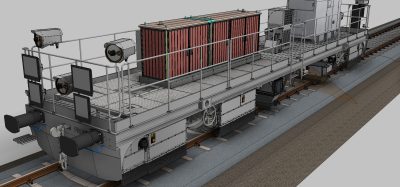RSSB launches Rail Carbon Accounting Framework to standardise UK emissions reporting
Posted: 7 October 2025 | Global Railway Review | No comments yet
RSSB has introduced the Rail Carbon Accounting Framework to unify carbon reporting and strengthen the rail industry’s net-zero commitments by 2050.


The Rail Safety and Standards Board (RSSB) has launched the Rail Carbon Accounting Framework (RCAF), a landmark tool to standardise carbon measurement and reporting across the UK rail sector.
Developed in partnership with the Government, the rail industry and the Science Based Target Initiative (SBTi), the framework introduces a consistent approach to calculating greenhouse gas (GHG) emissions.
The framework applies across the sector, from individual organisations to single journeys, helping rail track and cut its carbon footprint on the path to net zero by 2050.
Tackling fragmented carbon reporting
Until now, the rail industry struggled with fragmented carbon reporting. A lack of common methodology prevented reliable benchmarking, obscured the industry’s total emissions, and forced operators to develop their own costly accounting systems.
The RSSB Rail Carbon Accounting Framework addresses these challenges by aligning with international standards such as ISO 14064 and the Greenhouse Gas Protocol to ensure consistency and credibility. It offers tailored guidance for passenger and freight operators, infrastructure managers and rolling stock companies (ROSCOs). The framework also provides clear direction on setting reduction targets and establishes defined data flows to support RSSB’s Sustainable Insights Platform.
Graham Mollison, Head of Sustainability at Southeastern Rail and project sponsor, said: “RCAF is a powerful framework designed to help the rail industry align its carbon reporting. Before this was published, it was tricky for each company to know exactly what carbon data they should account for in their impact reporting.
RCAF provides us with clarity and certainty as we all develop our carbon accounting methodologies. The publication of the framework will support industry to account for its progress toward net zero carbon.”
“Rail industry faces an enormous challenge”
Noah Myers, RSSB’s Carbon Lead, added: “The rail industry faces an enormous challenge in affordably reducing emissions across its numerous activities and entities.
The RCAF replaces fragmented calculation methodologies with a unified approach that supports both strategic planning and operational decision-making. This will save time and money, improve data quality, and enable smarter investment in sustainability.”
Beyond sustainability, RSSB is also exploring the technology shaping rail’s future. Join our upcoming webinar Navigating the AI Revolution to learn how AI is transforming the industry and the challenges and opportunities it presents.
Stay Connected with Global Railway Review — Subscribe for Free!
Get exclusive access to the latest rail industry insights from Global Railway Review — all tailored to your interests.
✅ Expert-Led Webinars – Gain insights from global industry leaders
✅ Weekly News & Reports – Rail project updates, thought leadership, and exclusive interviews
✅ Partner Innovations – Discover cutting-edge rail technologies
✅ Print/Digital Magazine – Enjoy two in-depth issues per year, packed with expert content
Choose the updates that matter most to you. Sign up now to stay informed, inspired, and connected — all for free!
Thank you for being part of our community. Let’s keep shaping the future of rail together!








